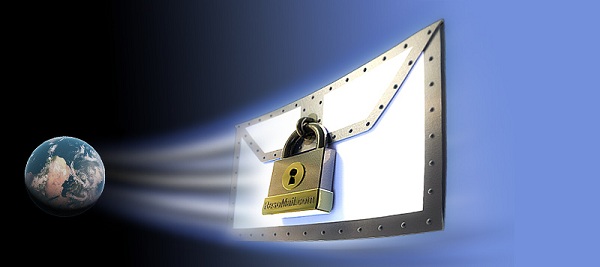Email is much less secure than most people believe, and considerably less secure than they find acceptable. For instance, many employees are horrified to learn that it is not at all uncommon for employers to sift through their personal emails, and although the extent to which they are justified in doing so remains controversial, they are in most cases totally entitled to.

Google routinely uses the content of Gmail messages to target contextual advertising. It searches email for words that indicate what the user is currently concerned with and then feeds him or her with specific advertisements. The claim is that this is acceptable as the email is read by a computer, not a human, however Google is currently being investigated by the Russian authorities as the activity is thought to be illegal in Russia. Now people are using email encryption to keep their email private from their email provider.
But if people are horrified by so-called legitimate use of their email, this is nothing compared to the horrors of phishing attacks, identity theft, viruses, spa, and other forms of email malware.
Take phishing attacks, where spoof emails are sent with the object of finding out personal and often financial information about the recipient. Most of us have received spoof emails purporting to come from Amazon, PayPal, eBay, or various banks, and they are generally easy to spot as they are littered with typos and bad grammar, though some people are still taken in. But they are getting much more sophisticated, and sometimes it can be very difficult to tell the difference between the spoof and a genuine message.
So-called spear-phishing emails contain links that take the user to spoof websites which can look almost identical to the real one, which may be an online bank. Recently the offices of the New York Times were hacked by spear-phishing emails that originated in China. Despite all the warning never to click on an email link, around 1 in 10 recipients actually do.
Email security requires that the user is protected from email spam and from email borne viruses. It requires that there are no data leaks, and that email content and email routing are secure. Maintaining a totally secure email system is a huge task, though cloud email management specialists Mimecast have developed some of the best email security systems that are available in the market.
The need for such systems has never been as big as it is today, and as the number of threats increases and as the sophistication of such threats grows, even better security systems will be needed in the future.
Email security is, and it is likely to always be, a game of cat and mouse and, although there are many mice, fortunately there are some very clever cats around.












Add Comment